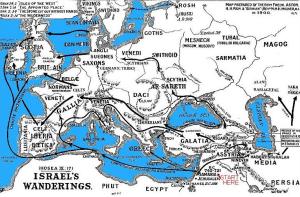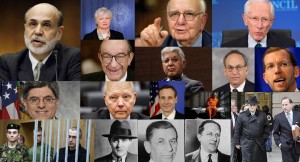The Common Man’s Music
 A common fallacy is that classical music is too good for disadvantaged ethnic-Europeans. The misunderstanding is the opposite of the truth. Classical music is more working class than is any other musical genre.
A common fallacy is that classical music is too good for disadvantaged ethnic-Europeans. The misunderstanding is the opposite of the truth. Classical music is more working class than is any other musical genre.
The composition of classical music requires intellectual gifts that are quite foreign to the wealthy and pretentious elite. Is this the reason why parasitical self-servers adopt truly great music as their own? Perhaps the dilettante believes that hijacking and forming a defensive ring around real music will somehow elevate their social standing in the community?
There are exceptions to the rule but classical music has its roots deep in the pastures of Europe’s impoverished class. History’s greatest composers are said to be J. S. Bach, Ludwig van Beethoven and Johannes Brahms. Dubbed the Holy Trinity each of these men, whose music holds hundreds of millions in awe, were born into poverty.

J. S. Bach was a poorly paid organist who supplemented his income by providing music lessons. Ludwig van Beethoven’s errant father was a near destitute church chorister with a penchant for alcoholism. The young Ludwig knew only hunger and beatings. The world’s greatest composers, like Mozart, Schubert and Schumann, died unrecognised in terrible poverty.

Johannes Brahms’ situation was not much better. As a struggling musician trying to keep body and soul together the German composer played the piano in the bars and brothels fronting Hamburg’s waterfront.
Most of today’s art patrons would have placed perfumed handkerchiefs to their noses had they chanced upon Modest Mussorgsky. One of Russia’s great composers he was once so desperately in need that when hospitalised a family friend loaned him a hospital gown.
Wolfgang Amadeus Mozart was the seventh son of a music teacher who, when on the road, rarely knew where the next penny was coming from. Joseph Haydn whose compositions inspired history’s greatest musicians was another dirt poor ethnic-European. Joseph Haydn and his contemporaries certainly played for the aristocracy but the city’s bars and inns were very much enlivened by ‘Haydn’s band’.

Robert Schumann certainly wasn’t born with a silver spoon in his mouth. This gifted composer was the son of a peasant who became a village schoolteacher; Austria’s most prolific composer hosted musical soirees dubbed Schubertiade. Nobility deigned not to be present.
Richard Wagner was a skirt-chasing revolutionary and serial debtor. Excuse the expression but Franz Liszt’s father scratched a living by playing the violin and cello and also by giving piano lesson.
Frederic Chopin’s parents were lowly paid music teachers, Bedrich Smetana’s father, a brewer by trade, must have been adept at slap and tickle for Bedrich was one of eighteen children. It must be something in the beer. Gustav Mahler’s father, the son of a street peddler, was an innkeeper and coachman. The father of Jean Sibelius died of typhus. When he passed on he left so much debt that his wife was obliged to sell the family home.
The originator of the nocturne was not Frederic Chopin as is commonly believed but John Field. Now, he really was the poet of the piano. Sadly, the Irishman was prone to alcoholism and died desperately poor in Saint Petersburg.
The adulation and exultation of the masses when Emil Waldteufel, Frederic Chopin, the Strauss brothers and their contemporaries composed a new dance was staggering. The cities of Europe went wild and sheet music changed hands at eye-watering prices. The most humble homes boasted complex musical instruments ~ and they could play them.

Considered to be the greatest conductor and musician of all time Austria’s Herbert von Karajan as a child endured poverty far beyond our understanding. The great Irish flautist, James Galway, who started life in one of the most deprived areas of terraced home Belfast, with typical Irish humour, referred to the Berlin Philharmonic Orchestra as ‘Herbie’s Band.’

When Spain’s Banco Sabadell sponsored a ‘flash mob’ the occasion’s popularity was overwhelming. The conductor of this performance was Hobart Earle. The Venezuelan first came to fame as conductor of the Odessa (Ukraine) Philharmonic Orchestra. Beethoven’s Ode to Joy was performed by Spanish musicians and conductor at the Placa de Sant Roc, a small town a little north of Barcelona. This YouTube presentation has so far attracted over 71 million views. Tough ex-British sailor I am but I cannot watch this impromptu performance without filling up and feeling overwhelmed by my pride of race.
As an interesting aside it was Friedrich Schiller’s poem, First Spring, which inspired Ludwig van Beethoven’s composition. In Schiller’s original lyrics are the words, ‘princes become friends with beggars.’ Such boldness scared the aristocracy who translated it to ‘all humans become brothers’.
I hold the utmost respect for genuine patrons of the arts. But, many today are what Adolf Hitler dismissed as the bien pensant or conventional conformists. Germany’s twice-elected Chancellor was both poet and artist. The German statesman and social reformer’s art pieces change hands at prices higher than Picasso’s. Very much a devotee and patron of the arts, including of course classical music, the German leader is credited with returning the people’s art and music to the people from whence it came. At the close of the war it was the Russian, American and British dilettante who looted German art and denied the world’s greatest art to the people who had created it.
Among the glitterati that attend great cultural events there are few who created anything other than a wealth wrung from the sweat rags of the most creative peoples of all time; the ethic-European working class.
No Copyright. Republishing or Sharing Appreciated
BANCO SABADELL ODE TO JOY FLASH MOB




